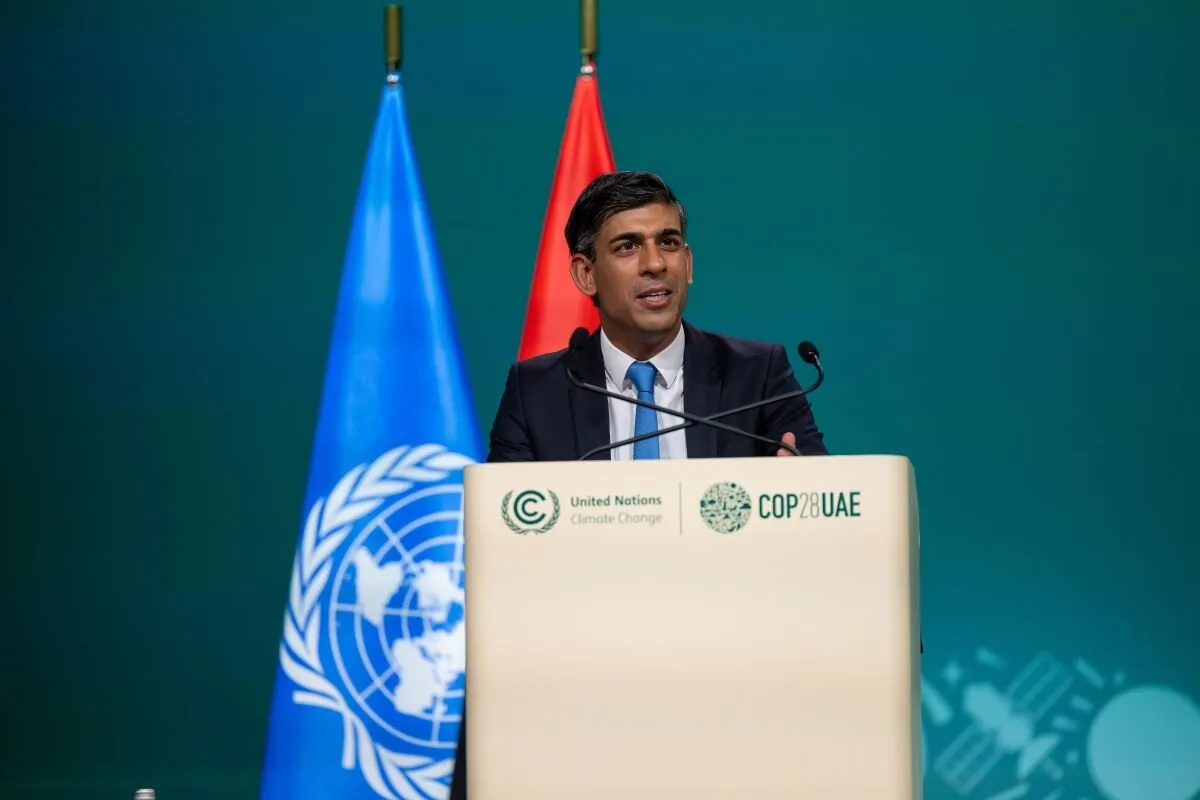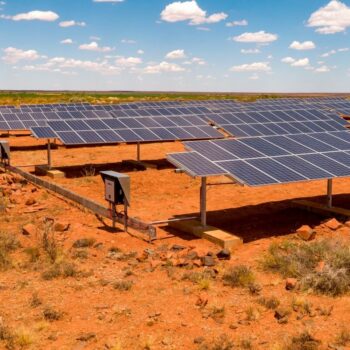Balancing international and domestic policy is a challenge as old as diplomacy. For climate, conflicts arise faster and more frequently than in any other sector. Every reasonable world leader agrees we need wide-ranging, collective action to avoid catastrophe. However, in the domestic setting, a myriad of other policy priorities, balance sheets and public opinion create barriers to delivering on a net zero global vision.
At COP28, the UK is struggling to align its international ambition with domestic policy. Rishi Sunak has always been a domestically focused prime minister. While this is understandable in the context of growing domestic issues and a looming general election, the worrying stance he has taken on climate domestically now hamstrings his ability to exert influence on the global stage. The UK risks sliding further away from its position as a climate leader.
The UK has made some commitments. £1.6 billion in international climate finance, including £40 million for the much-needed Loss and Damage Fund is not nothing. However, it is far from the amounts we need to keep to Paris-aligned targets. Given an unwillingness to commit more financially, the UK now has to rely heavily over the next two weeks on its other value adds to the global conversation; namely green policy expertise, mantle as co-chair of initiatives like the PPCA and CETP, and position as a global centre for private finance.
One boost to the UK’s reputation has been King Charles. His strong speech at the opening ceremony served as a reminder that the UK remains a climate leader and comes to COP28 with a strong base and well-established alliances on which it can build. The UK government has had huge successes over the last 13 years on climate, including capitalising on the country’s inherent economic, innovative and natural advantages, and as host of COP26. For Rishi Sunak, this is a key opportunity to cement his government’s legacy.
However, Sunak’s efforts to impress a global audience are hampered by his domestic stance. Perhaps it is Energy Secretary Claire Coutinho who sums up the UK government’s approach to climate politics best: “climate change is not a domestic problem, it’s a global one”. Sadly the Prime Minister’s attempt at galvanising global action at COP28’s World Climate Action Summit was undercut by a rather different press briefing just hours afterwards. On the global stage the Prime Minister struck a collaborative tone, but to the UK lobby he framed his comments with a lack of ambition, including pushing an inaccurate line that the UK leads on emissions reductions, and deflecting attention to China. As a result, after two days of COP the question observers are left with is “what are the UK’s aims?”
Yet, as COP moves from an ambition-setting summit to a delivery-oriented global planning session, implementation and delivery at a national level shows itself to be ever more critical to meeting legally-binding pledges. Climate change is very much a domestic problem. Sunak is not wrong to make claims of a UK legacy of climate leadership, but now he must back them up with tangible, rapid and large-scale action. Their negotiating position is not far off the mark, but their political rhetoric limits the scope for diplomats to build coalitions of ambition to land a credible response to the global stocktake. The UK’s ministers need to pick up from Sunak’s initial blunders and use COP28 as a chance to build ties and drive the UK’s global agenda, especially on issues such as climate finance.
Just as Sunak is looking to cement the Conservative Party’s climate credentials, for Keir Starmer, leader of the UK opposition, COP28 is a crucial moment to do the same. Starmer must take this opportunity to demonstrate that, under him, the UK will develop its climate leadership both domestically and internationally. Like Sunak, Starmer has used strong rhetoric on the benefits of the transition. Now, like Sunak, Starmer must show his plan to meet climate goals, and deliver those benefits. For Starmer, this fortnight is also a test of his abilities as a climate diplomat. Should he win office it will be into the worst decade yet of climate damages, making the ability to build international partnerships and lead on the global climate agenda critical to his government’s success.
The next two weeks are a critical opportunity for the UK’s leaders to define the UK’s direction on climate. They must show how they will deliver a UK that can step forwards, support its allies and develop its leadership. This means aligning domestic and international policy to clearly show what the UK aims to achieve and what it is willing to do to get there.


